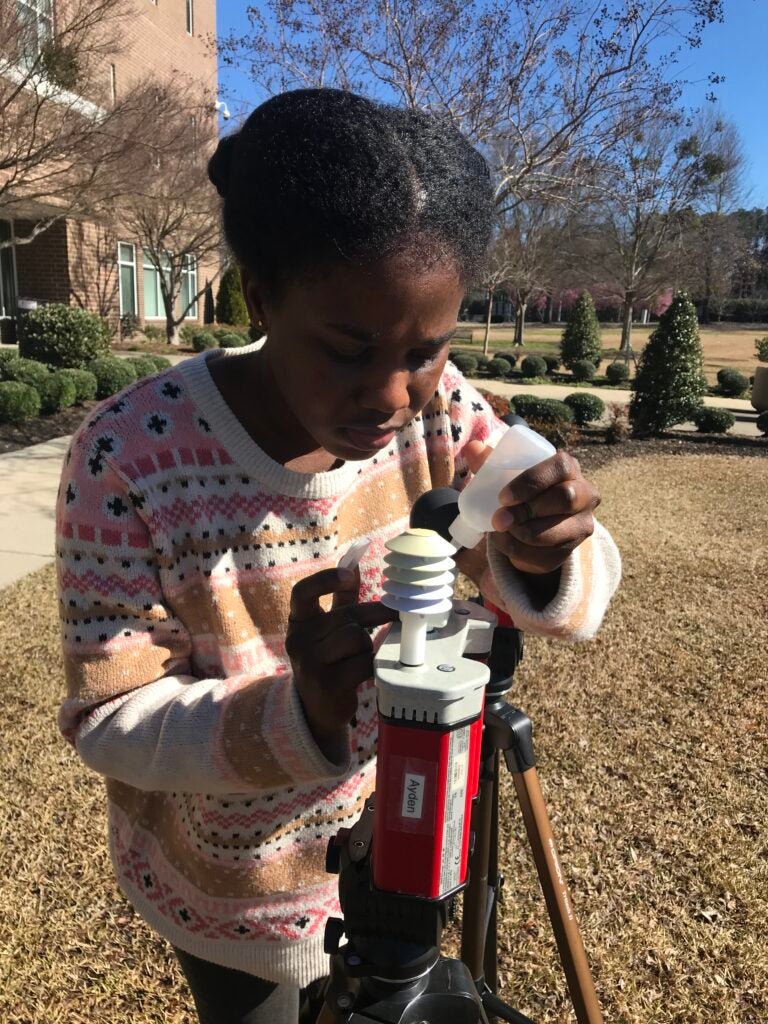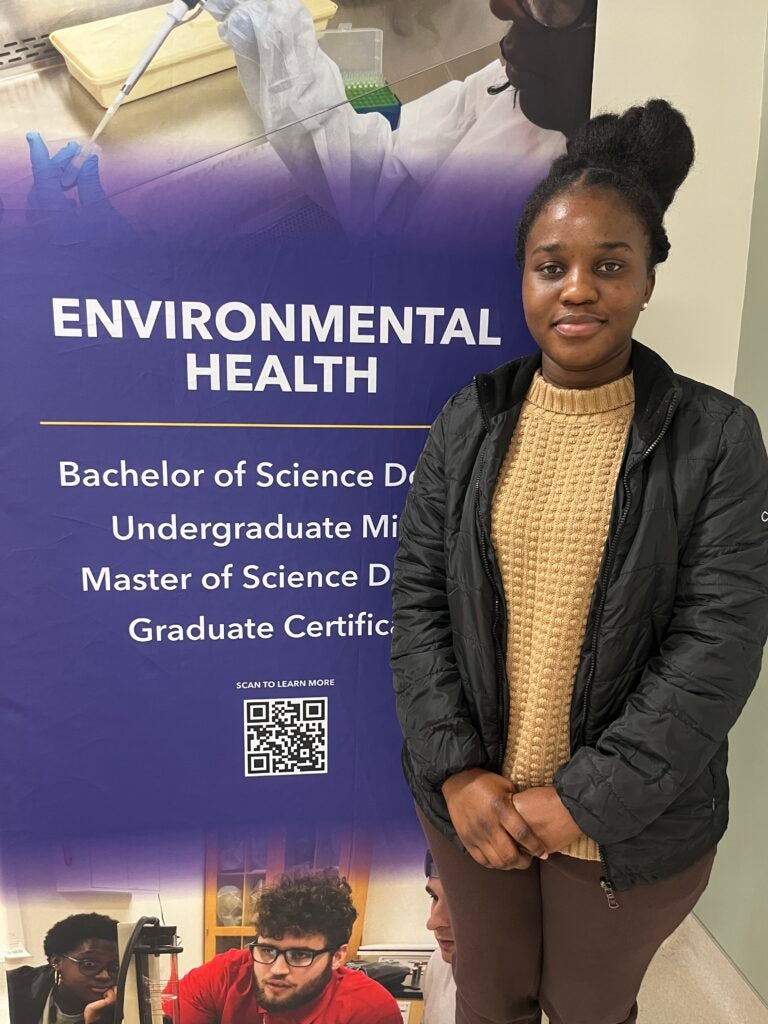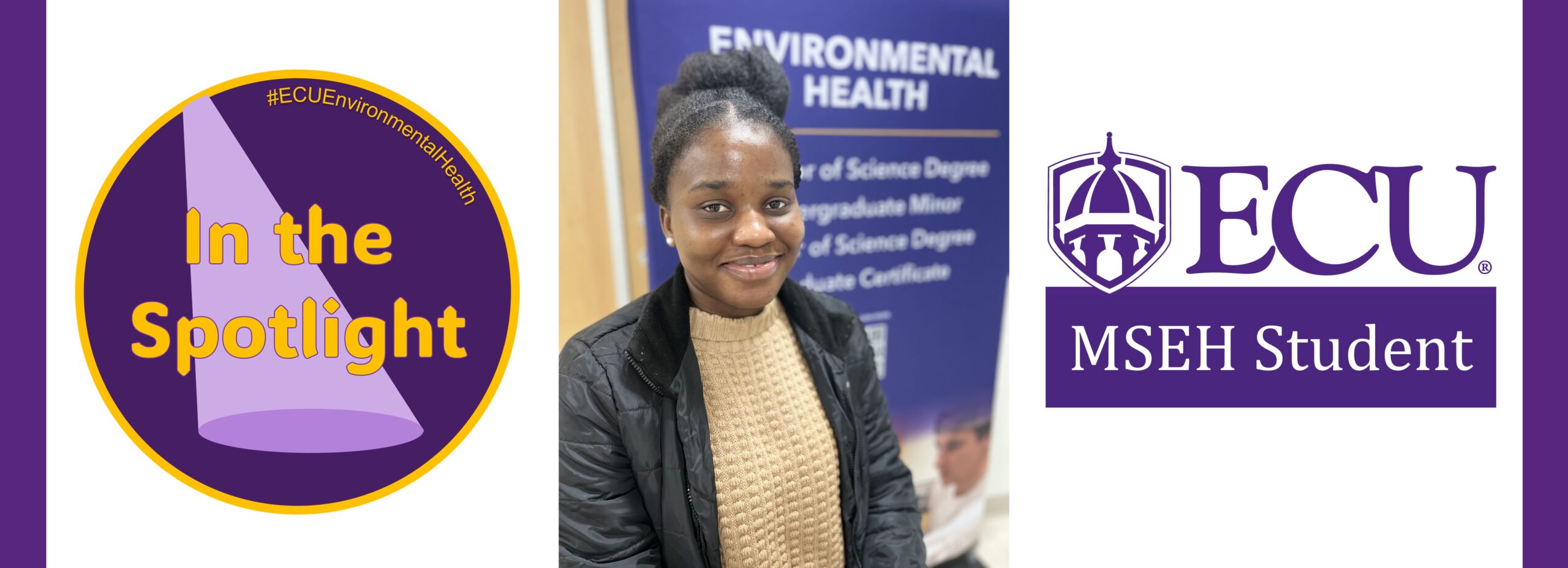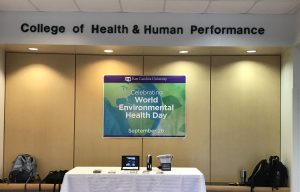Tell us a little bit about yourself and how you became interested in environmental health.
“I have a background in medicine, which has provided me with a deep understanding of human health and disease. My interest in environmental health began during my clinical rotations in Ghana. I was exposed to the direct impacts of environmental factors on health. I saw how local communities were affected by issues such as water pollution, inadequate sanitation and air quality, which highlighted the importance of the environment in shaping health outcomes. This realization was a turning point for me. It bridged my medical knowledge with a growing concern for our surroundings. I became increasingly interested in the preventative aspect of medicine, particularly in how we can prevent illnesses by ensuring a healthier environment. In Ghana, I witnessed the challenges faced in implementing effective environmental health policies, especially in resource-limited settings. This experience solidified my resolve to delve into environmental health, combining my medical background with new knowledge in environmental science to contribute to this vital field.”
Describe your current research and what you enjoy most about it.
“My current research is the comparison between the WBGT app prototype and the WBGT monitor to assess heat stress risks in groundskeeping in an eastern North Carolina university setting. This research is very significant because it addresses the critical issue of occupational health, specifically the risks associated with heat exposure in outdoor work environments. The study compares the effectiveness of the WBGT app prototype against the WBGT monitor. The aim is to explore innovative, accessible ways to safeguard workers’ health in hot weather conditions. What I enjoy most about this research is its practical application and potential impact. It’s gratifying to work on a project that directly contributes to improving workplace safety and health standards. I’m particularly intrigued by the integration of technology in occupational health using the WBGT app to monitor environmental conditions, which is a novel approach that could revolutionize how to assess and manage heat stress risks in various settings.”

What is the most interesting research challenge that you have encountered, and what was your approach to solving it?
“One of the most interesting challenges in my research has been ensuring the accuracy and reliability of the WBGT app prototype in diverse environmental conditions. Given the variability of outdoor settings and the critical nature of accurate heat stress assessment, the app’s readings needed to be consistently reliable. To address this, my approach involved a rigorous comparative analysis under various environmental conditions. This included conducting simultaneous data analysis with the WBGT monitor and the WBGT app prototype across different times of the day.”
If you could go back in time, what advice would you give to your graduate-student self?
“If I could go back in time, I would advise my graduate-student self based on the experiences and insights I have gained. I would advise myself to enjoy the journey of discovery and learning. The path through graduate studies is as rewarding as it is challenging, and it’s important to cherish the experience and the growth it brings. Also, I would advise myself to trust in my capabilities, recognizing that I am in my position for a reason and have valuable contributions to make.”

When you’re not busy conducting experiments in the lab or field, what are some ways you like to spend your time winding down from a busy workday or week?
“When I’m not immersed in my research, I find balance by engaging in activities that rejuvenate both my mind and body. I enjoy outdoor pursuits like taking a walk, which allows me to connect with nature and maintain physical fitness. I enjoy cooking and experimenting with new recipes. It’s a fun way to unwind, and it also allows me to explore different cultures through their cuisines.”



